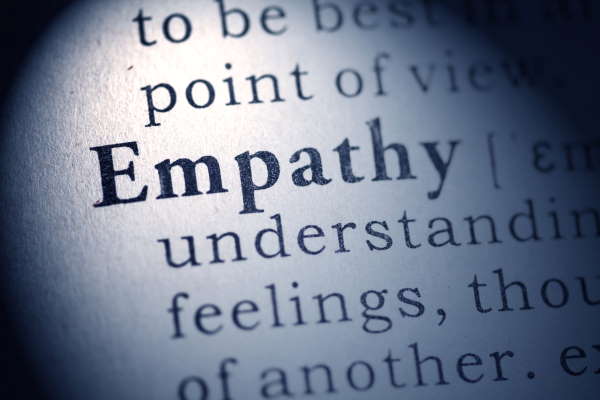If your child can think of themselves as a caring and compassionate person, they are more likely to act in a caring and compassion manner. If they can imagine themselves as responsible for helping others, they are more likely to develop a positive moral identity. A positive moral identity is crucial for raising empathetic kids.
So often, we tell our kids “Great job!” or “You’re so smart!” or “We are so proud of your good grades!”. While it’s important to acknowledge their cognitive, social and physical accomplishments, we cannot forget about their moral accomplishments like compassion, kindness, generosity and concern for others.
Children generally act in ways that align with their own self-image. So, if you want your child to be empathetic, make sure that you are helping your kids recognize and value their moral assets such as compassion and empathy. Those assets define their moral identity and shapes your child’s character.
Today, character development has taken a back seat and success has been redefined. Success is defined as wealth and popularity. This shift in values has made it harder for our children to honor the perspective and feelings of others. As a result, their moral identity suffers.
There are many modern-day challenges that our kids face today that negatively affect the development of their moral identity. Narcissism has steadily been on the rise, creating kids who feel entitled and who only focus on their own needs and feelings. They see the world through only their own perspective. They lack the experiences needed to help them learn to walk in another person’s shoes.
Another challenge they face is parents who overvalue their accomplishments. Of course, children need to know that they are loved and appreciated, but those kids whose parents gave overly exuberant praise were suffering the most narcissism. Overinflating your child’s ego can cause your child to believe that they are entitled to more and more accolades. It is natural for us, as parents, to want our kids to feel good about themselves. But what seems to be missing is helping them to care about others as well.
The potential for altruism in your kids does exist and we can nurture it in our children. If we want empathetic children, it’s our job to help them develop a self image that defines them as caring people who value the perspectives of others. When kids think of themselves as someone who cares about others, they are more likely to reach out to help others.
By now you’re most likely asking yourself…how do I bolster my child’s morality?
The words we use to talk to our kids can help define who they become and the type of people they believe themselves to be. Too much praise can make kids more self-centered, more competitive and more prone to put others down. Too little encouragement can negatively affect their self-esteem. The right words can help kids see themselves as kind, considerate and respectful people. They want to act in ways that support that image. Here are 5 ways to help your children form a positive moral identity.
1-Observe how your child responds to your praise and encouragement. Watch for signs of entitlement. Watch for signs that your child is dependent on your praise, constantly asks if they are doing a good job, or if they expect to receive accolades for everything they do.
2-Align your praise with character. Help your child see themselves as a good person, letting them know that their behavior matches their identity. For example, talk about their positive character traits in relation to their behavior.
3-Focus on character, not behavior. Kids who are praised for their character rather than their specific behaviors were able to internalize their altruism.
4-Model it. Remember that our kids are watching and listening to everything we do and say. Whatever behavior you want to see in your family, you must be willing to model yourself.
5-Teach children how to help kids stick to their beliefs. Standing up for their beliefs and principles can be challenging. Peer pressure can make kids doubt themselves and waiver from their moral identities. Teach your child to express their beliefs in a firm voice, using a firm posture. Teach them to say no and walk away from a situation if needed.
Forming a moral identity is a lifelong process. It evolves through a variety of feedback that we receive, observing others, reflecting on our experiences and responding to cultural influences. Next time, we’ll talk about how you, as a parent/caregiver, can help your family develop a moral identity and define what your core values as a family will be.
If you would like to find out about more ways to bullyproof your kids, check out our latest e-book called “Bullyproof”. It’s full of ideas on how you can take small steps to empower your child to stand up to bullies, to keep the lines of communication open and to help your child to become more empathetic and compassionate.
Subscribe to our email list at the end of this post and you’ll get the free e-book delivered to your inbox. Then you will be notified when new blog posts are published, receive our newsletters and other useful information about bullying prevention.



Recent Comments